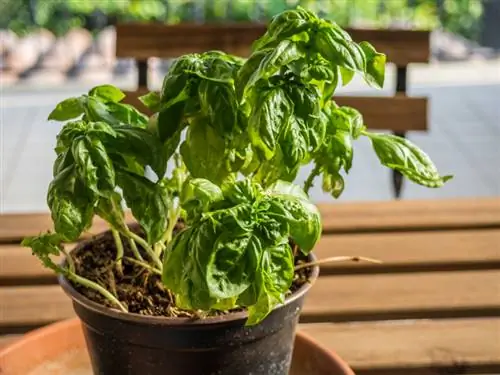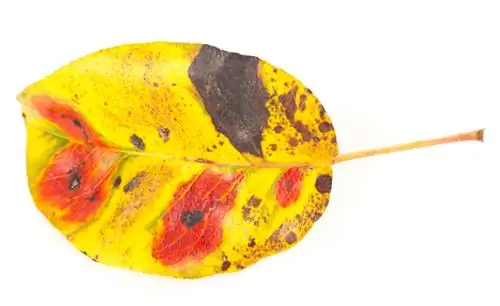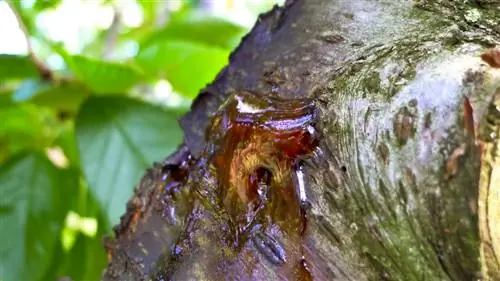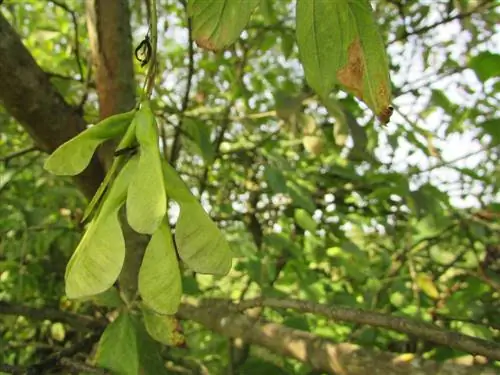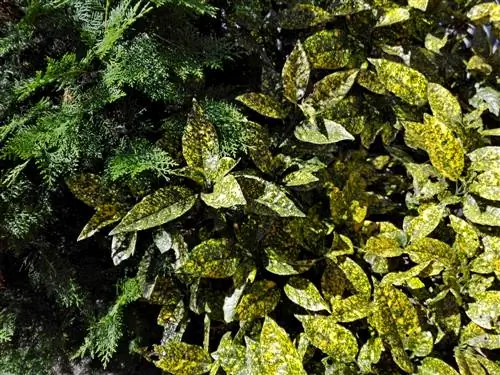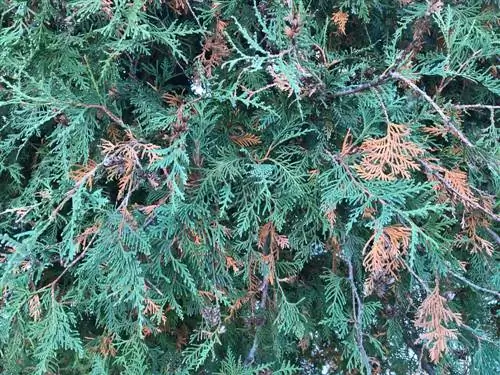- Author admin leonars@hobbygardeners.com.
- Public 2023-12-16 16:46.
- Last modified 2025-01-23 11:20.
Suffering basil presents with mottled or deformed leaves. The following lines explain which diseases are hidden behind the symptoms and how they can be combated.
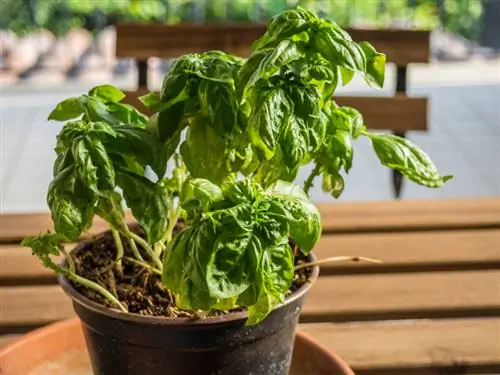
What diseases can affect basil and how can I fight them?
Basil diseases include Septoria fungal infections, which cause brownish necrosis on the leaves, alfalfa mosaic virus, which causes leaf vein lightening and mosaic patterns, and thrips, which can transmit viruses. Preventive measures and targeted removal of affected plant parts help to minimize spread and damage.
Septoria fungal infections
They manifest themselves in brownish necrosis on the leaves, which gradually spreads. The spores of the ascomycete genus Septoria strike preferentially in warm, humid weather in June, July and August. In the final stages of the disease, the foliage dries up and falls off. Although there is currently a lack of effective fungicides, with a little luck you can stop further spread:
- when the first symptoms appear, cut back affected branches except for a pair of leaves
- Isolate basil in the pot from other plants
- dispose if the plant does not recover
- Burn cuttings or dispose of them in household waste
As a preventive measure, it is recommended not to fertilize with a high nitrogen content and to always water basil from below. In addition, the choice of location plays a central role. Choose a sunny, warm place protected from rain.
Alfalfa mosaic virus
This widespread viral infection is transmitted in different ways. Infected tools are often the cause or aphids carried the bacteria with them. After an incubation period of 2 weeks, the first symptoms appear in the form of brightening of the leaf veins and mosaic-like patterns on the foliage. As a result, deformations develop and the plant dies.
An immediate fight against viruses is neither chemically nor biologically possible. Infected basil plants should be destroyed immediately. To prevent the disease from spreading further in the garden, you should take strong action against the aphids. How to prevent alfalfa mosaic virus:
- Use only certified seeds from specialist retailers
- meticulously disinfect all tools before and after maintenance work
- Don't leave any plant remains on the ground as possible overwintering quarters for the viruses
Thrips under suspicion
In the context of current research, thrips were suspected of also transmitting the viruses. Prudent hobby gardeners therefore also include the control of these pests in their preventative measures.
Tips & Tricks
Do not fight aphids on basil with one of the common liquid home remedies, such as the classic soft soap solution. The herb plant does not want to be watered or sprayed with other liquids. In this case, you can put an end to the annoying pests with pure charcoal ash or primary rock dust. Simply spread with a powder tip.

